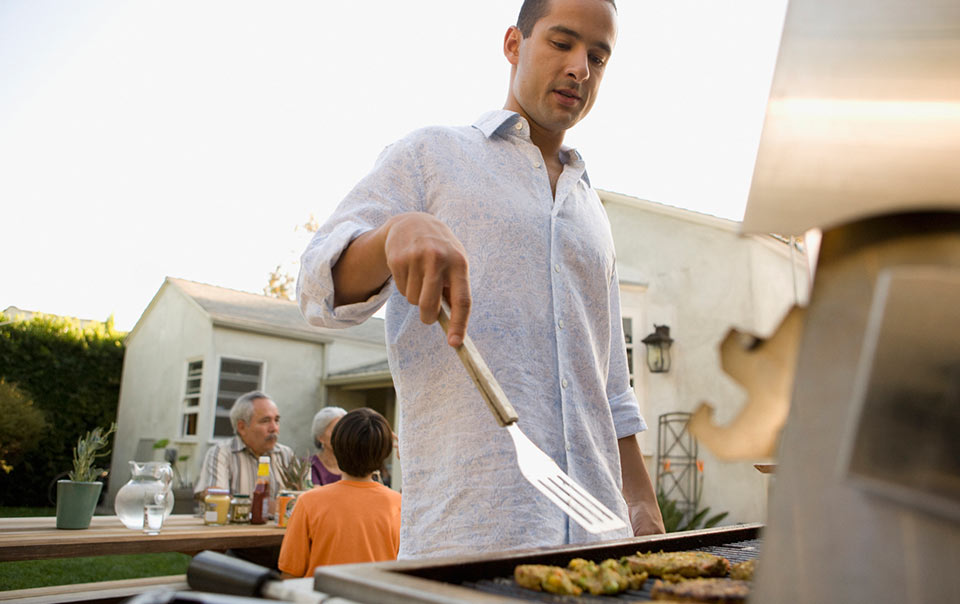 You may be the kind of person who fires up the grill all year long at tailgating parties, or maybe you wait for a warm summer day and a backyard full of friends before you put on your apron. Either way, grilling can be one of life’s simple pleasures. Unfortunately, where there is fun there is also the potential for safety issues. For example, did you know that leaving the grill unattended, not cleaning grease or fat build up properly, or placing the grill too close to combustible siding can cause injuries, fires and property damage? Charcoal or Gas? Nearly 9,000 home fires a year involve grills, according to a National Fire Protection Association report. Of all the home fires involving grills, gas-fueled grills accounted for four out of five fires, while 16% involved charcoal or other solid-fueled grills. Gas and charcoal grills each have ardent advocates, who praise the convenience of gas or the flavor of charcoal. Whichever your preferred grilling method, follow these important safety considerations. Gas Grill Safety A leak or break was the leading factor contributing to gas grill-related fires, according to the NFPA report.
Charcoal Grill Safety The leading cause of structure fires from use of charcoal grills was leaving or placing an object that could burn too close to the grill, according to the NFPA study.
Here are some other important tips to help you keep danger away when you are enjoying food and fun. Choose a safe location for your grill. Keep grills on a level surface more than ten feet away from the house, garage or other structures. Keep children and pets away, as well as overhanging branches. Grills should not be used on a balcony or under an overhang. Avoid placing grills too close to combustible deck rails. Grill outside only. Never use a grill in a garage, vehicle, tent or other enclosed space, even if ventilated, due to risk of harmful carbon monoxide buildup. Keep the grill going on a cold day. During cool weather days, avoid wearing a scarf or other loose clothing that may catch on fire. Consumer Reports recommends shielding the grill from wind, placing it about ten feet from combustible surfaces and materials, and keeping the lid closed to retain as much heat as possible. Allow extra time for pre-heating the grill in colder weather and check temperatures of meat and fish with a meat thermometer to ensure that food is safe to eat. Teach kids to stay safe. Make a “kid-free zone” of at least 3 feet around the grill and areas where hot food is prepared or carried. Children under five are especially vulnerable to burns from contact with a hot grill surface. Grill contact accounted for 37% of burns seen at emergency rooms in 2014 involving children under five. Remember post-grilling safety. Keep your grill clean by removing grease or fat buildup from the grills and in trays below the grill. If you grill with charcoal and need to dispose of the coals, soak them in water to extinguish them before disposing in a metal container. Otherwise, cover the grill tightly and close the vents, this should extinguish the coals and whatever is left will be ready for next time.
2 Comments
Leave a Reply. |
Contact Us(570) 344-5150 Archives
May 2017
Categories |
Navigation |
Connect With Us |
Contact UsNortheast Insurance & Financial Consultants
2121 Shoppes Blvd. Moosic, PA 18507 (570) 344-5150 Click Here to Email Us |
Location |
Website by InsuranceSplash

 RSS Feed
RSS Feed
